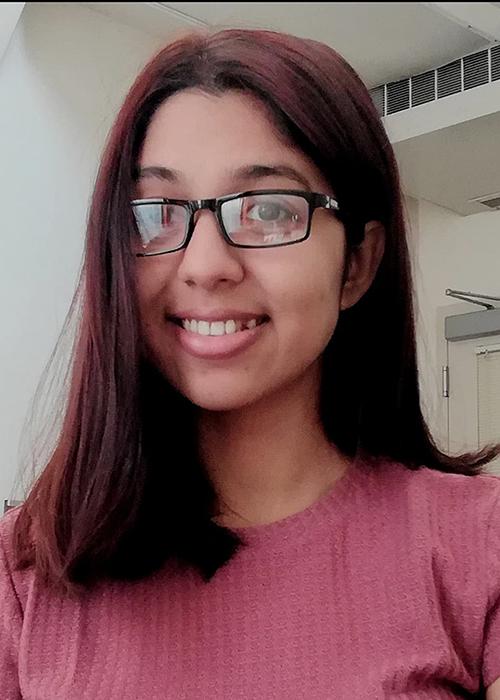Many mobile apps that track the spread of COVID-19 ask for personal data but don’t indicate the information will be secure

Credit: Courtesy Tanusree Sharma
CHAMPAIGN, Ill. — Mobile apps are helping track the spread of COVID-19 to contain the outbreak, but the apps also raise concerns about personal privacy.
Information sciences professor Masooda Bashir and doctoral student Tanusree Sharma at the University of Illinois at Urbana-Champaign analyzed 50 COVID-19-related apps available in the Google Play store for their access to users’ personal data and their privacy protections. Bashir and Sharma found that most of the apps required access to users’ personal data, but only a handful indicated the data would be anonymous, encrypted and secured.
They report their findings in the journal Nature Medicine.
“What is disconcerting is that these apps are continuously collecting and processing highly sensitive and personally identifiable information, such as health information, location and direct identifiers (e.g., name, age, email address and voter/national identification),” they wrote in the journal article. “Governments’ use of such tracking technology – and the possibilities for how they might use it after the pandemic – is chilling to many. Notably, surveillance mapping through apps will allow governments to identify people’s travel paths and their entire social networks.”
The functionalities of the COVID-related apps developed around the world include live maps and updates of confirmed cases, real-time location-based alerts, systems for monitoring home isolation and quarantine, direct reporting to the government of symptoms and education about COVID-19. Some also offer monitoring of vital signs, virtual medical consultations and community-driven contact tracing.
Of the 50 apps the researchers evaluated, 30 require users’ permission to access data from their mobile devices such as contacts, photos, media, files, location data, the camera, the device’s ID, call information, Wi-Fi connection, microphone, network access, the Google service configuration and the ability to change network connectivity and audio settings. Some of the apps state they will collect users’ age, email address, phone number and postal code; the device’s location, unique identifiers, mobile IP address and operating system; and the types of browsers used on the device.
Only 16 of the apps indicated such data will be anonymous, encrypted, secured and reported only in aggregate form.
Of the apps sampled, 20 were issued by governments, health ministries and other such official sources. It is not clear if the data collected by the apps is protected by laws such as the Health Insurance Portability and Accountability Act, and the U.S. doesn’t have a structured privacy framework in place as Europe does, the researchers wrote.
They acknowledged that mass surveillance measures may be necessary to contain the spread of the virus.
“Health care providers must absolutely use whatever means are available to save lives and confine the spread of the virus,” they wrote. “But it is up to the rest, especially those in the field of information privacy and security, to ask the questions needed to protect the right to privacy.”
###
Bashir will participate in a webinar, “Ask the experts: COVID-19 exposure notification, privacy, and security,” with other Illinois security experts at 4 p.m. Tuesday, June 9. They will talk about data privacy and security concerns surrounding the technology pertinent to COVID-19 exposure notification and tracing.
Bashir is the director of Social Sciences in Engineering Research in the Grainger College of Engineering and is affiliated with Illinois Informatics and the Information Trust Institute of the Coordinated Science Laboratory. Sharma is affiliated with Illinois Informatics.
Editor’s notes: To contact Masooda Bashir, email [email protected]. To contact Tanusree Sharma, email [email protected].
The paper “Use of apps in the COVID-19 response and the loss of privacy protection” is available online and from the U. of I. News Bureau.
DOI: https:/
Media Contact
Jodi Heckel
[email protected]
Original Source
https:/
Related Journal Article
http://dx.




